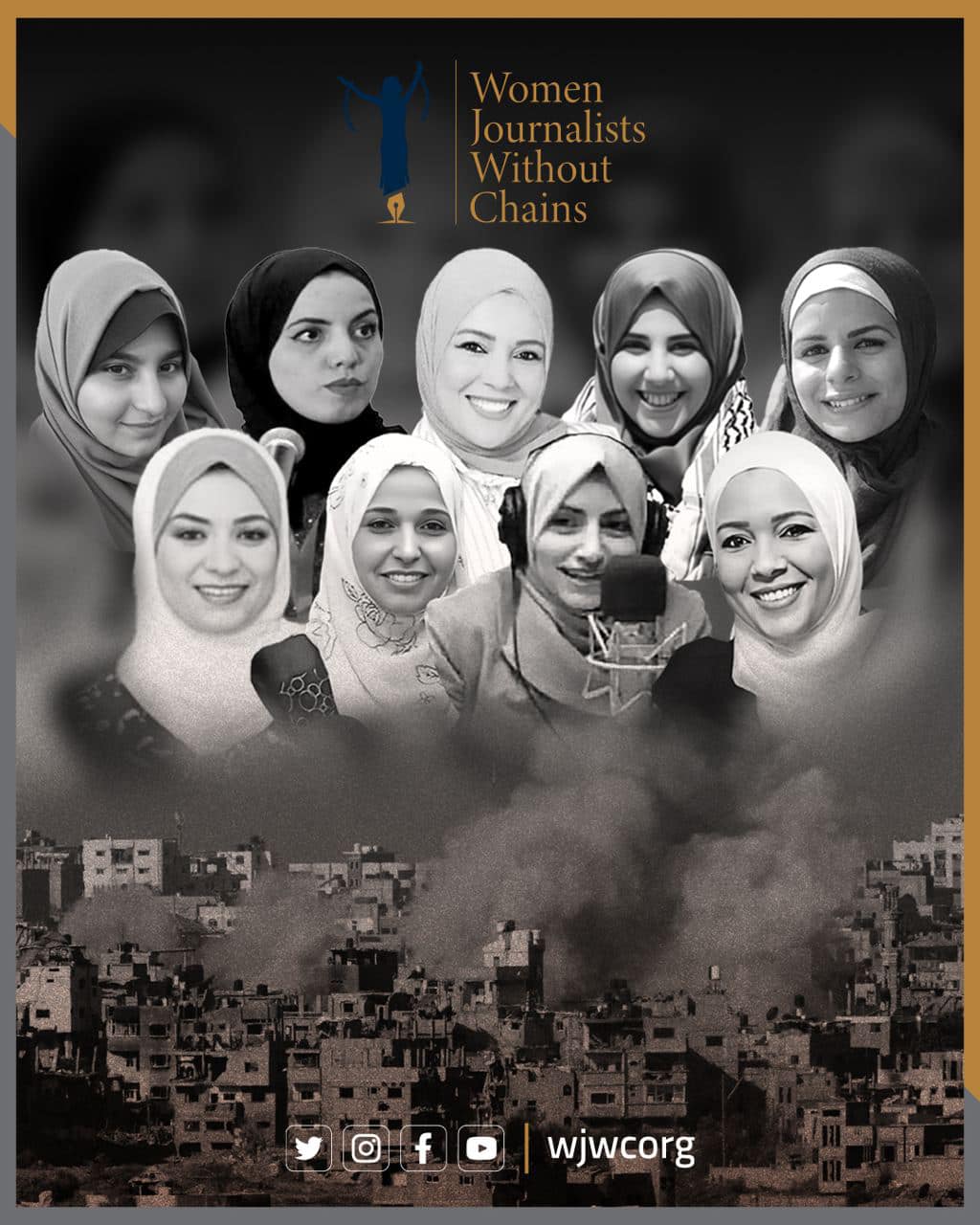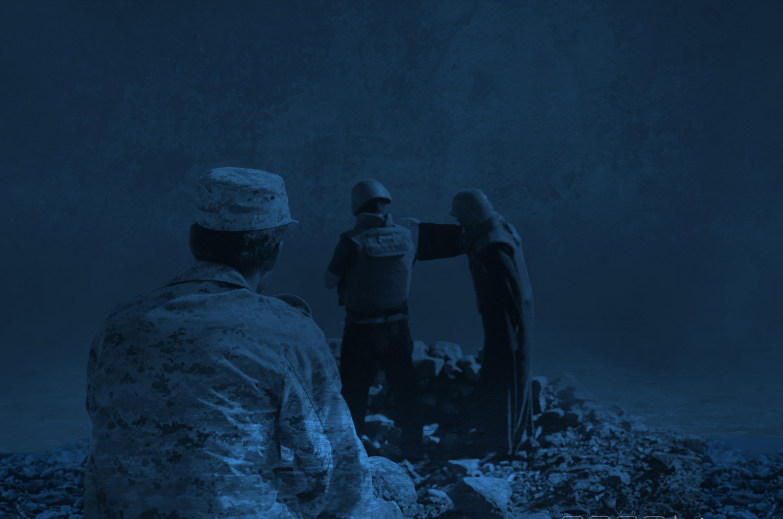Upon the invitation of the International Federation of Journalists and journalist unions worldwide February 26th is recognized as the International Day of Solidarity with Palestinian Journalists. This day coincides with a period marked by an alarming surge of violence, considered the deadliest attacks on journalists in recent history. Since October 7th of the previous year, more than 125 journalists have tragically lost their lives in the Gaza Strip, attributed to the brutal machinery of the Israeli occupation.
Despite facing the daunting challenges of violence, injury, arrests, and harassment, Palestinian journalists, both male and female, persist in their mission to disseminate the truth to the global audience. They courageously report on the harsh realities of war crimes, genocide against civilian populations, and the numerous violations perpetrated by the occupation authorities and settlers within the occupied Palestinian territories.
Tawakkol Karman, the Nobel Peace Prize-winning head of Women Journalists Without Chains, stated, "The Israeli occupation forces are waging a comprehensive war against Palestinian journalists, and implementing a clear-cut methodology to kill the truth and assassinate journalism around the world." Karman further added, "The reporting of Palestinian journalists is of utmost importance as it contributes to conveying the truth to the world and exposing the violations perpetrated against their people. It is a sorrowful day tinged with the bloodshed of these heroes who have sacrificed their lives for the truth, serving as a reminder of the challenges journalists worldwide face in conveying the facts."
The Most Lethal Assaults on Journalists in History
Journalists operating in the Gaza Strip have faced substantial risks while covering the Israeli ground offensive and the intensifying airstrikes, resulting in the highest number of journalist casualties ever recorded. They have encountered obstacles including power outages, communication disruptions, transportation challenges, and the blockage of humanitarian aid.
From October to February 19, Women Journalists Without Chains' Rights and Freedoms Monitoring Unit has documented the deaths of over 125 journalists, including 7 Palestinian female journalists. Shockingly, some journalists have been killed along with their entire families. Additionally, more than 75 press, radio, and television institutions and offices have been destroyed, with numerous other violations, including injuries to male and female journalists, and the prevention of their press coverage.
Journalists and their families in conflict or war zones are safeguarded by international law, and deliberate targeting of them during conflict constitutes a war crime. This principle is enshrined in Article 79 of Protocol I of the Geneva Conventions, which categorizes journalists engaged in "dangerous professional missions" as civilians. While Israel is not a signatory to Protocol I, both Palestine and Lebanon are.
Targeting journalists in conflict zones, as seen in Israel's actions, constitutes a violation of the principles outlined in Security Council Resolution No. 2222. This resolution underscores the imperative to regard journalism professionals and their associates as civilians deserving of protection. Currently, the International Court of Justice is examining potential Israeli war crimes in the Gaza Strip. Meanwhile, the Israeli army continues to persist in its refusal to guarantee the safety of journalists operating within the Gaza Strip.
Israel's disregard for international laws, both in times of conflict and peace, particularly its failure to safeguard male and female journalists in the Gaza Strip from targeting, poses a significant threat to the rules-based global order. This is especially concerning given Israel's status as a Western ally and its portrayal as an advanced democratic state in the region.
Both within and outside the Gaza Strip, the Israeli occupation consistently fails to provide assurances for the protection and safety of journalists in the occupied Palestinian territories. Journalists in these areas endure persistent threats of arrest, torture, and abuse, along with frequent physical assaults by Israeli occupation forces and settlers. Additionally, the occupation authorities obstruct journalists from covering events in the occupied territories and routinely confiscate the equipment of Palestinian journalists without returning it.
Palestinian journalists encounter violations not just from the Israeli occupation but also from the Palestinian Authority in Ramallah. The Palestinian Authority has a history of arresting journalists who criticize it and pressuring media outlets and journalists to avoid criticizing it in their reporting. Although these violations may not reach the same level as those perpetrated by the occupation, it is troubling that the authority, which should safeguard journalists and advocate for their rights, is implicated in such actions against them.
A Terrible Situation
Tawakkol Karman expressed deep concern over the plight of Palestinian journalists, describing their experiences as horrific and terrifying for the journalism community both regionally and globally. She further emphasized that the Israeli occupation's actions constitute the most significant threat to journalism in modern history. Karman labeled the situation an unprecedented massacre and called for the perpetrators to be held accountable by the international community.
On the International Day of Solidarity with Palestinian Journalists, hats of respect, honor, and admiration must be raised to the Palestinian female journalists who bravely navigate the challenges of balancing their journalistic responsibilities with the demands of seeking asylum and caring for their families. Amidst the dire refugee situation in the Gaza Strip, they endure hardships such as the struggle to provide food for their hungry children, residing in makeshift tents, and lacking access to essential medicines and supplies. They serve as enduring symbols of female journalists in the Middle East, North Africa, and the wider world.
Women Journalists Without Chains calls on the international community, as follows:
• urgent action is needed from the international community to ensure the protection of both male and female journalists in the Palestinian territories, with a particular focus on the Gaza Strip.
• It is imperative to hold the Israeli occupation accountable, both as a system and its military and political leaders, for their role in directing lethal force against journalists and media institutions in Gaza. The responsibility for their actions must be established without delay. The urgency to hold Israel and its leaders accountable arises from their long-standing impunity in perpetrating systematic murders.
• Supporting the resilience of Palestinian journalists in the Gaza Strip is crucial, given their severe deprivation of essential resources such as food, water, clothing, blankets, and tents. The suffocating siege in the region hampers the arrival of supplies, rendering them prohibitively expensive for journalists. Standing with them is a humanitarian duty, ensuring the continuation of their coverage and the provision of factual information.
• Partners of Israel, including the United States, the European Union, and the United Nations, as well as countries that uphold the rules-based global order and prioritize press freedom, have a responsibility to exert pressure on the Israeli government. They should demand an immediate halt to the unprecedented attacks on journalists and insist on the commitment to protect their safety.
Released by:
Women Journalists Without Chains
February 26, 2024


 En
En  Ar
Ar 



